Icons at the End of the Road
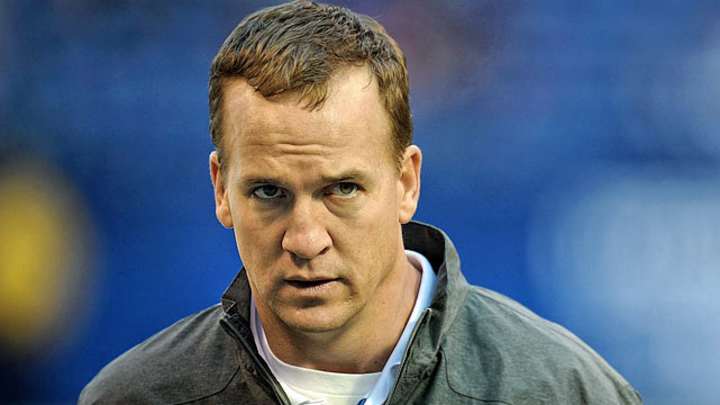
Icons at the End of the Road
Peyton Manning

There's always a certain amount of disorientation when an icon leaves a team with which he has been long-identified to play in a new city. With Peyton Manning and the Colts parting ways, SI.com takes a look at some other icons who ended up leaving their longtime home.
Brett Favre
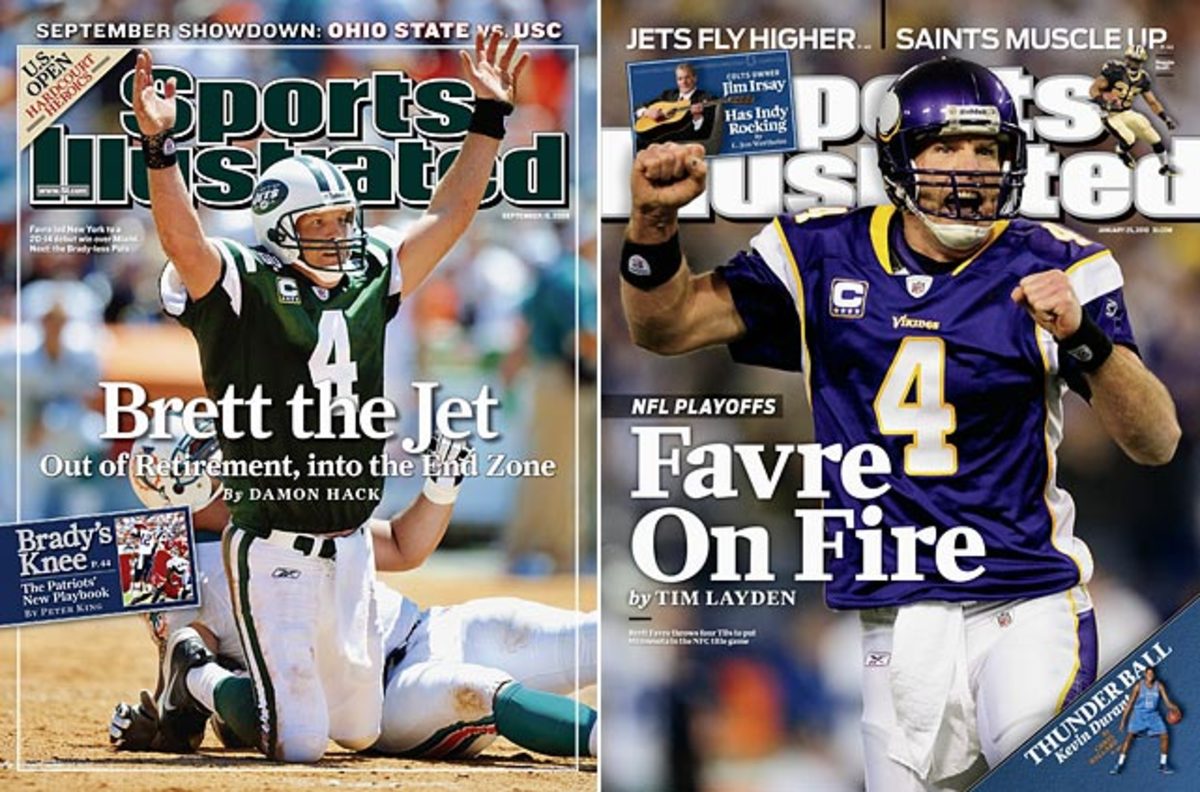
After months of waffling, Brett Favre came out of retirement in the summer of 2008 and was quickly shipped from Green Bay to the Jets. He spent one relatively unsuccessful year in New York before retiring (again) and returning (again), this time to play two years with Packers' rival Minnesota.
Joe Namath
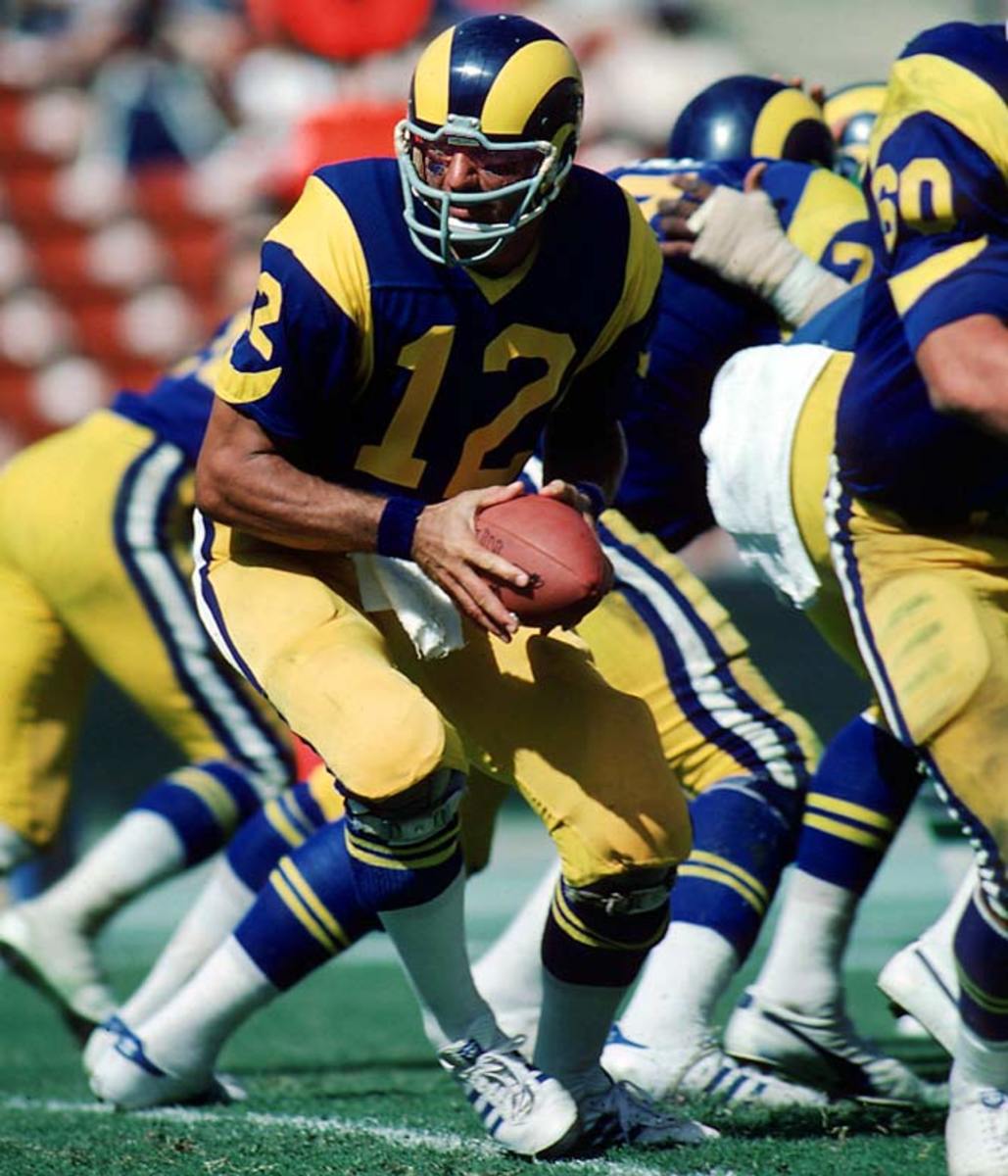
Hobbled by chronic knee woes and bad wheels, Broadway Joe was waived by the Jets, who were unable to trade him, and went west to Hollywood where he signed with the L.A. Rams in May 1977. Hope of a revival was stirred when they won two of their first three games, but Namath proved to be less than mobile than a department store mannequin. After he was harassed into four picks and pounded into the rainy Soldier Field sod by the Bears in a Monday night loss, Namath never saw NFL game action again.
Willie Mays
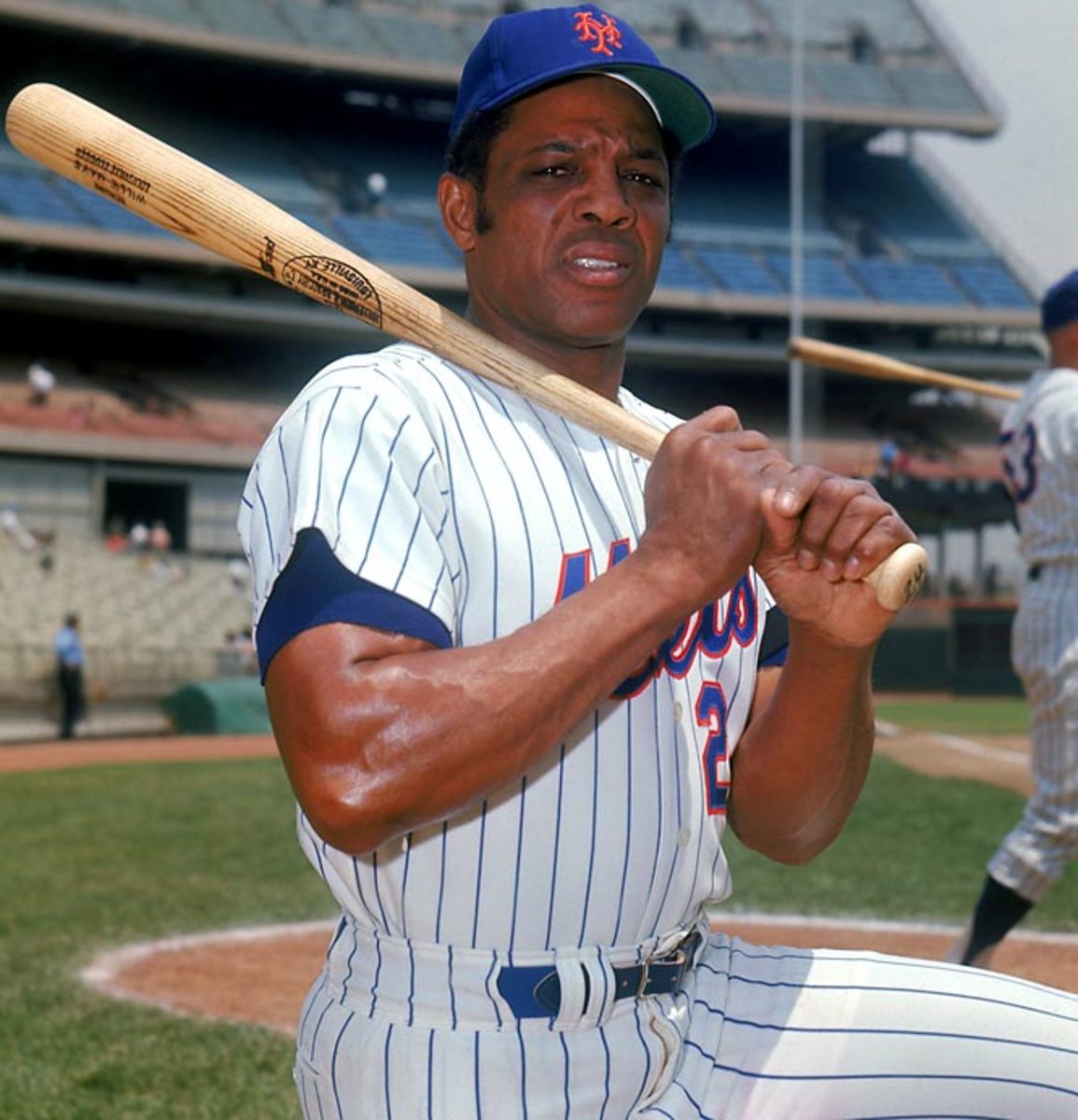
It was an emotional homecoming for the fading Say Hey Kid, 41, who was dealt to New York for pitcher Charlie Williams and $50,000 by the cash-strapped San Francisco Giants in May 1972. In his first game as a Met, Mays cracked a game-winning homer against the Giants and went on to hit .267 with eight homers and 19 RBI in 69 games. A spot player and inspirational presence, Mays' last hurrah came in the 1973 World Series, which the Mets lost to Oakland in seven games. He hit .286 in three games, but also fell in the outfield while chasing a fly ball -- a poignant reminder that he was no longer capable of feats like his dramatic over-the-shoulder catch in the 1954 Series.
Bobby Orr
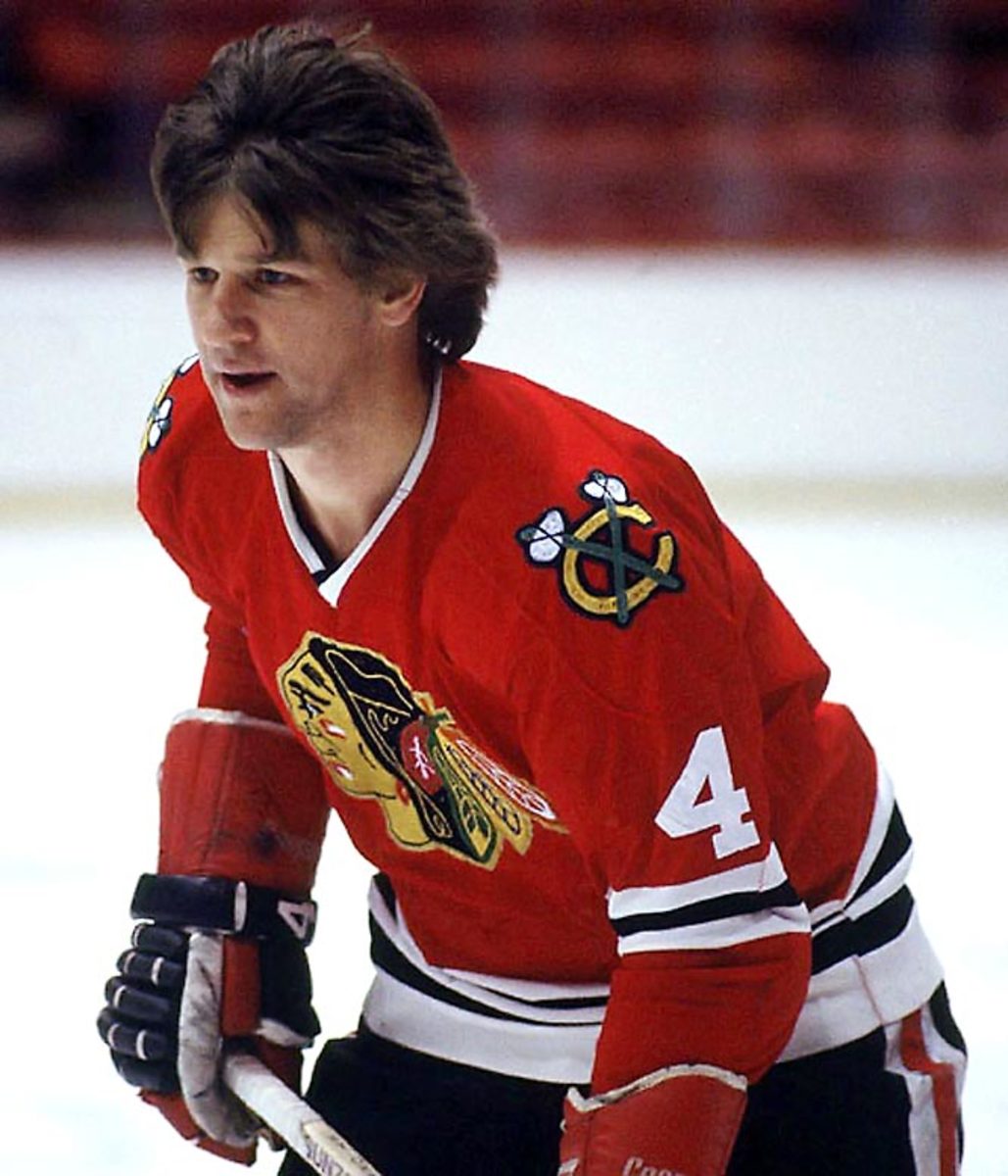
The revered Bruin blueliner left Boston amid controversy after the Bruins offered one of the richest deals in sports history: five-years at $925,000 and an ownership stake. Agent Alan Eagleson convinced Orr that the Blackhawks were the better choice, so he signed with them on June 9, 1976 for a reported $1.3 million. Eagleson was chummy with Hawks owner Bill Wirtz and was later accused of steering Orr to Chicago without fully informing him of the Bruins' offer. Slowed or sidelined by ravaged knees, Orr played in only 26 more NHL games and retired in 1979 without ever cashing a Hawks paycheck, stating that he was paid to play hockey, not sit.
Joe Montana
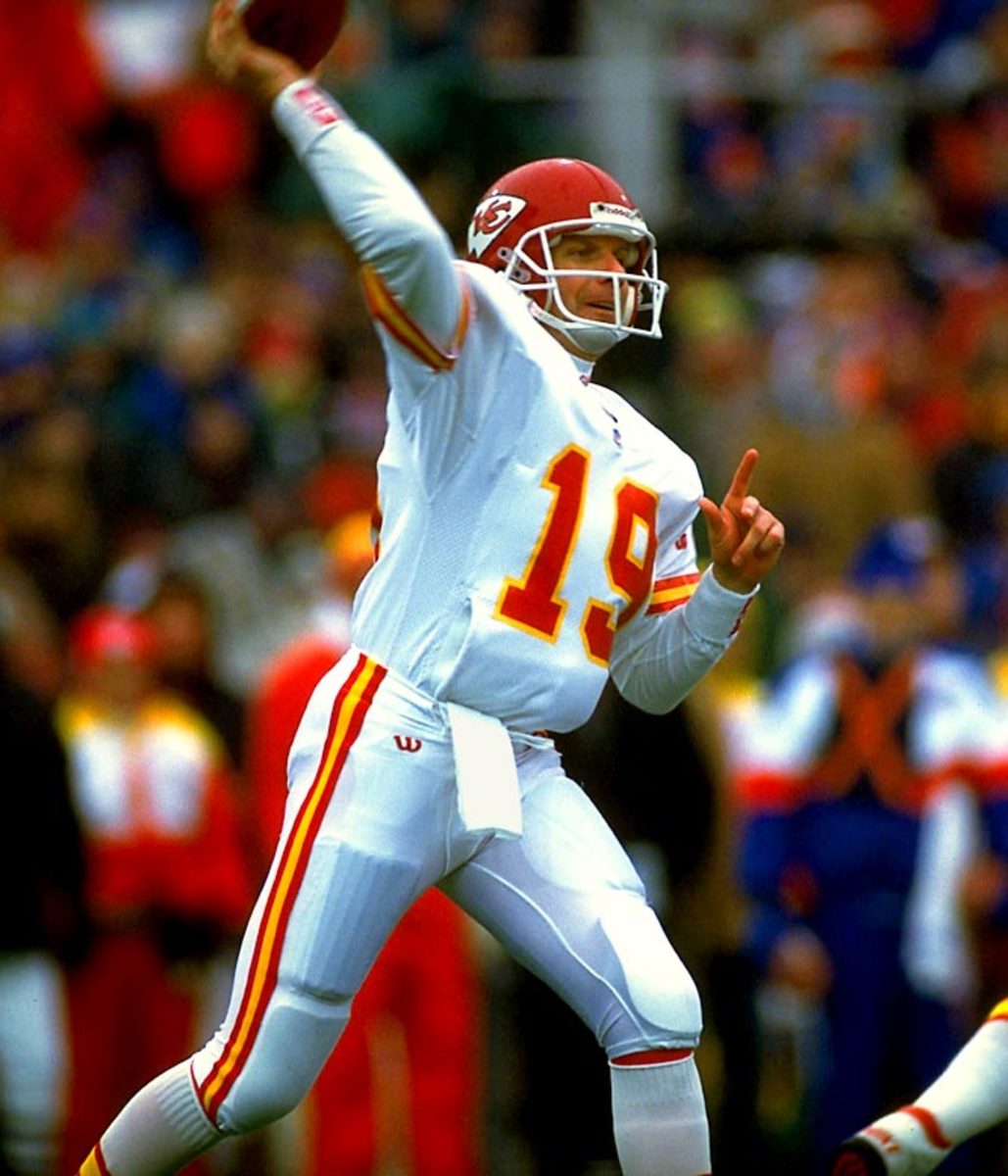
After missing the 1991 season and much of 1992 due to injury, Montana requested a trade when he found himself in danger of losing his starting job with the 49ers to Steve Young. Despite a fan uproar, Montana ended up with the Chiefs in April 1993, creating headlines and Super Bowl buzz. Given a three-year, $10 million deal, the three-time Super Bowl MVP flashed his old magic. He was a Pro Bowl pick and led the Chiefs to the AFC Championship Game, where they lost to Buffalo. In his final season, Montana beat Young and the Niners and guided the Chiefs to the `94 playoffs where they fell to Miami in the Wild Card round.
Hank Aaron
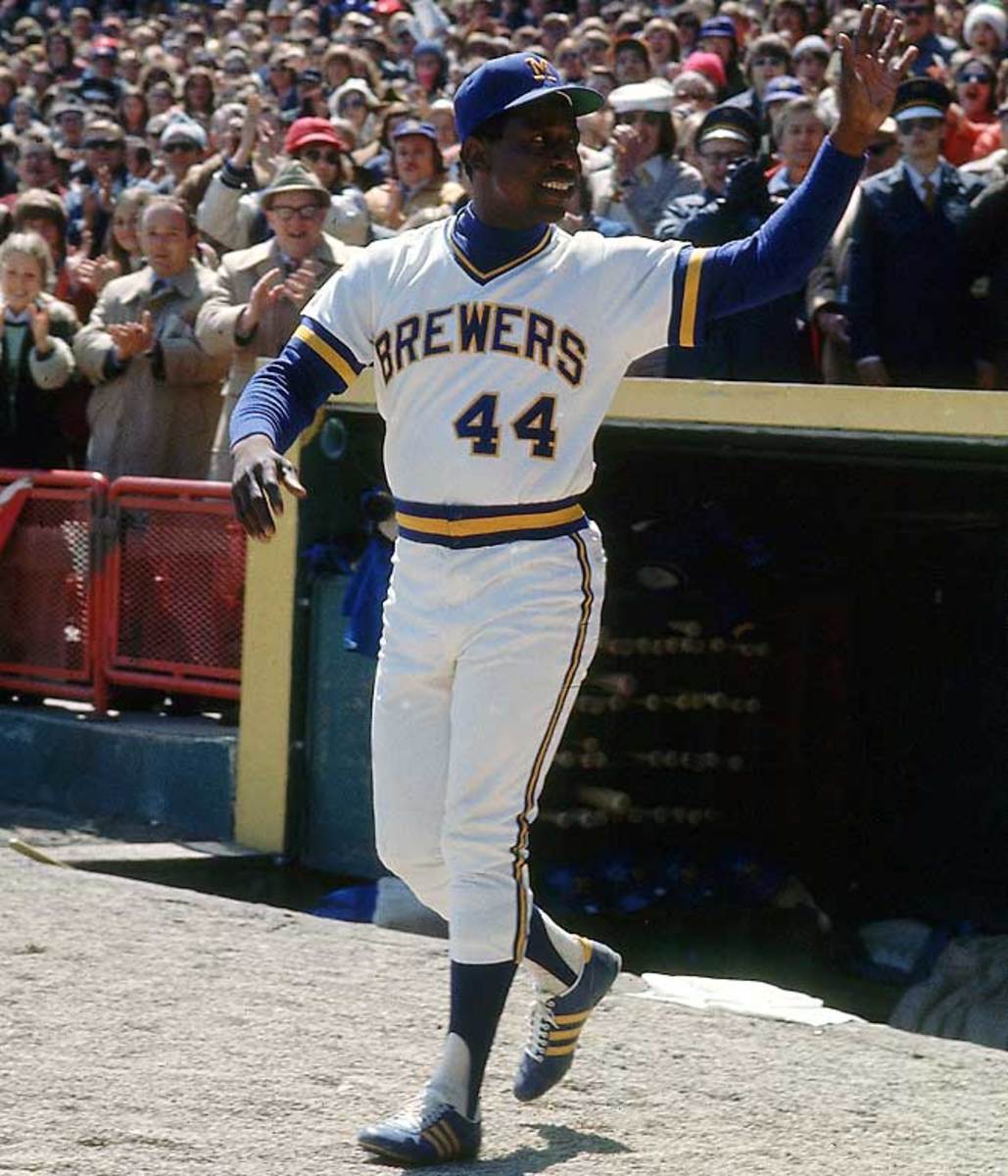
On Nov. 2, 1974, the Braves traded baseball's 40-year-old all-time home run king to the team's former home city for outfielder Dave May and a minor league pitcher. Being a full-time DH enabled Aaron to break Babe Ruth's career RBI mark (2,217) in 1975, but he hit only 234 with 12 homers. Nevertheless, he was honored with his 24th All-Star appearance, before an adoring crowd at Milwaukee County Stadium, where he would hit his 755th and final homer on July 20, 1976.
Michael Jordan

After two retirements and saying he was almost certain he'd never play again, the part owner and President of Basketball Operations for the Wizards created a storm of speculation when he spent the spring and summer of 2001 in training. That September, Jordan announced his comeback with Washington and led the team in scoring, assists and steals before a knee injury ended his season early. The next season, his last, was marked by sellouts, tributes and grumbling from the other Wizards as Jordan openly criticized them. He was an All-Star and the first 40-year old to top 40 points in a game three times, but the team again failed to make the playoffs. Jordan then returned to the front office, where he was booted in May 2003.
Babe Ruth

His skills fading and his desire to manage causing friction, Ruth refused the job with the Yankees' top minor league team and was traded for essentially nothing on Feb. 26, 1935 to the Boston Braves, who desperately wanted a gate attraction. Ruth's deal included a role as assistant manager plus a share of the team's profits -- promises that never materialized. He hit only .181 and fielded wretchedly before May 25, when he cranked three homers, his last clearing the roof at Pittsburgh's Forbes Field -- the first player to accomplish that feat. Five days later, the former Sultan of Swat hurt his knee and soon announced his retirement. Boston finished 38-115.
Tony Dorsett
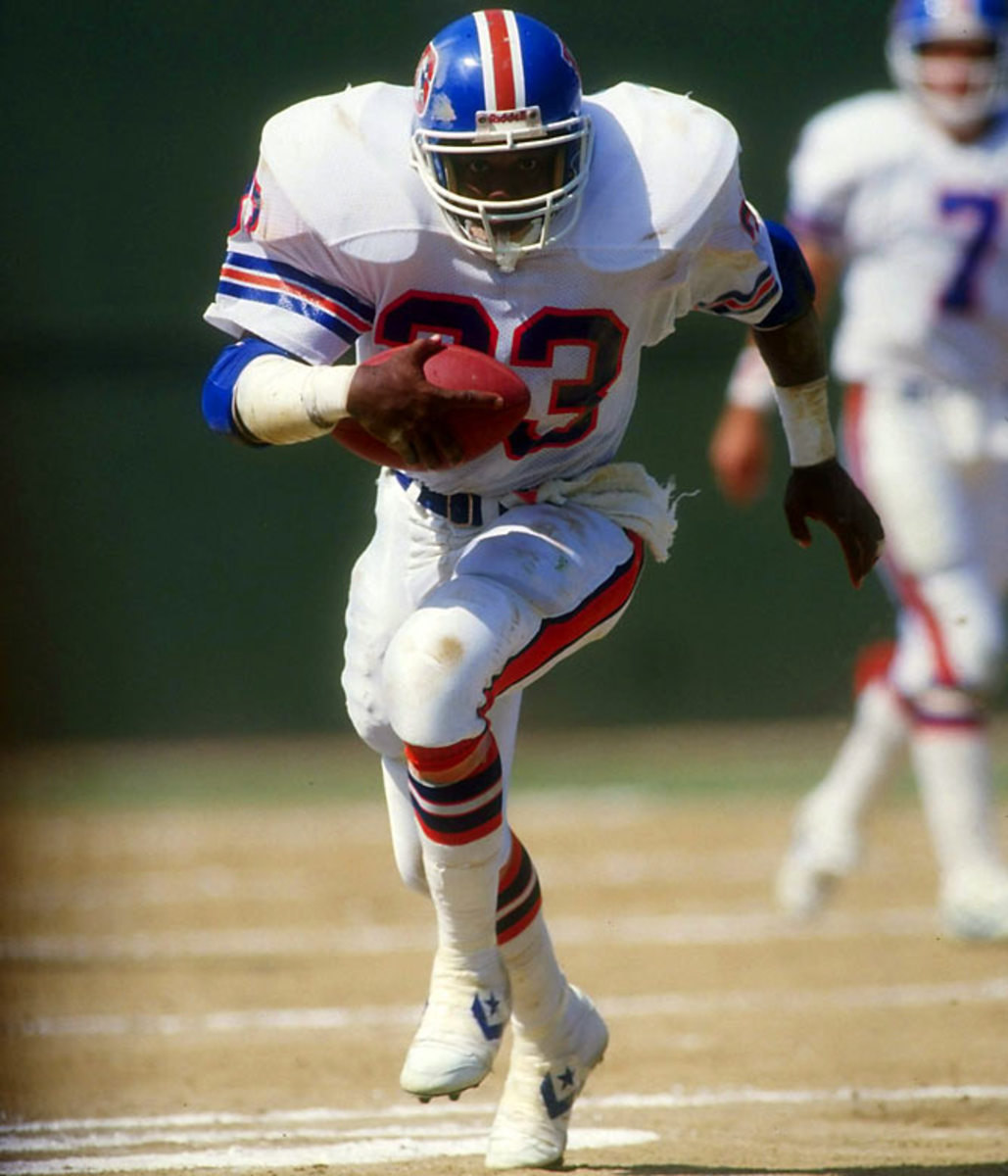
Dorsett rushed for 12,033 yards during 11 seasons with the Dallas Cowboys and was a key to their five NFC title game and two Super Bowl appearances (one a win), but his role shrank in 1987. Hoping to complement the passing of John Elway and win a Super Bowl after three futile attempts, the Broncos took a gamble by acquiring Dorsett, 34, before the 1988 season for a conditional draft pick. He led Denver in rushing with 703 yards, but the Broncos still finished 8-8 and out of the playoffs. The pounding Dorsett absorbed led to his retirement after the season.
Gordie Howe
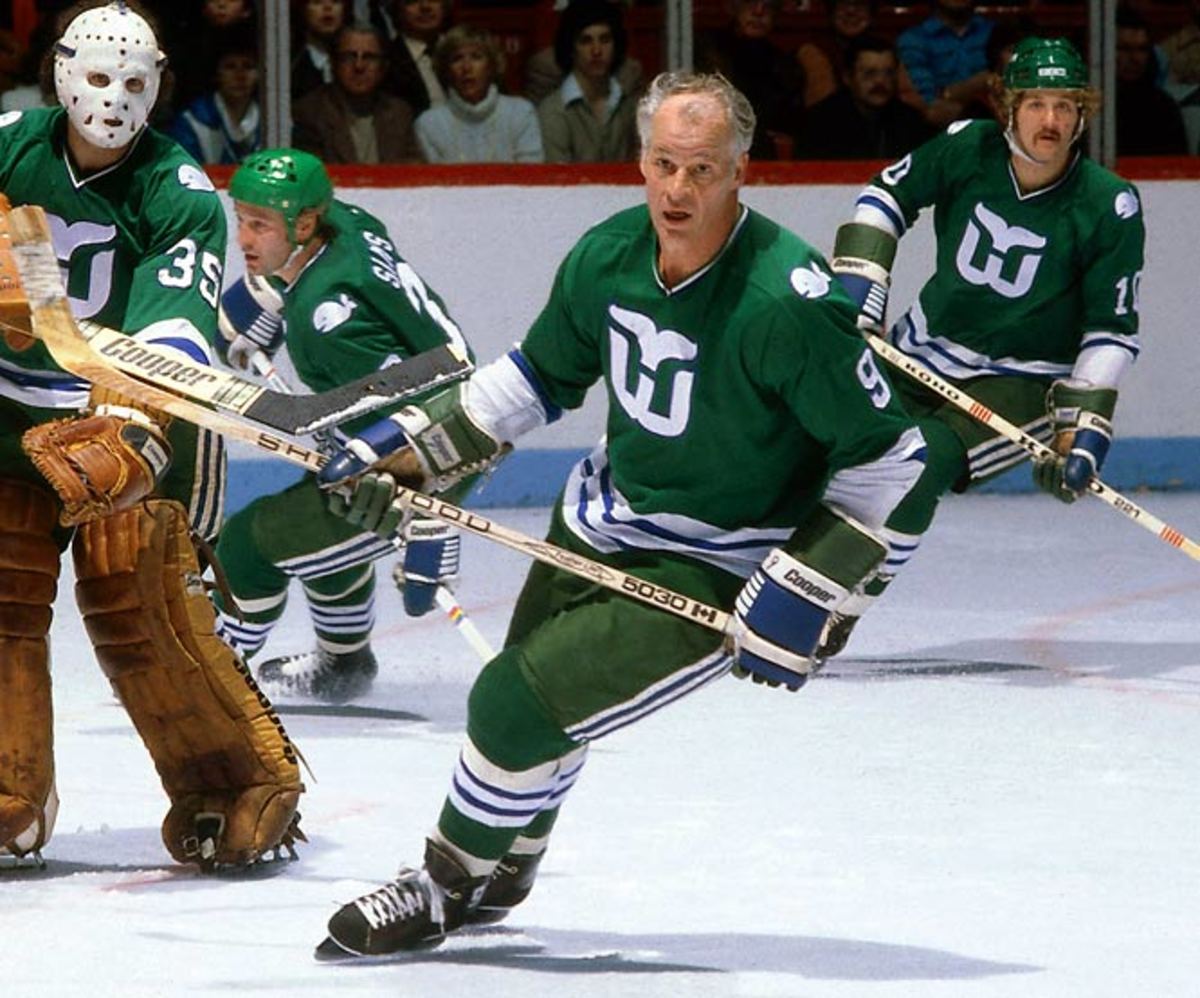
A bad wrist ended Mr. Hockey's 25 years with the Red Wings and planted him in Detroit's front office in 1971. A year later, he was back on the ice with sons Mark and Marty, skating for the Houston Aeros of the new World Hockey Association. When the Aeros folded in 1977, Howe signed with the New England Whalers, who were absorbed by the NHL two years later. At the spry age of 51, he played his final season, appearing in all 80 games, scoring 15 goals and helping the Whalers make the playoffs.
Emmitt Smith
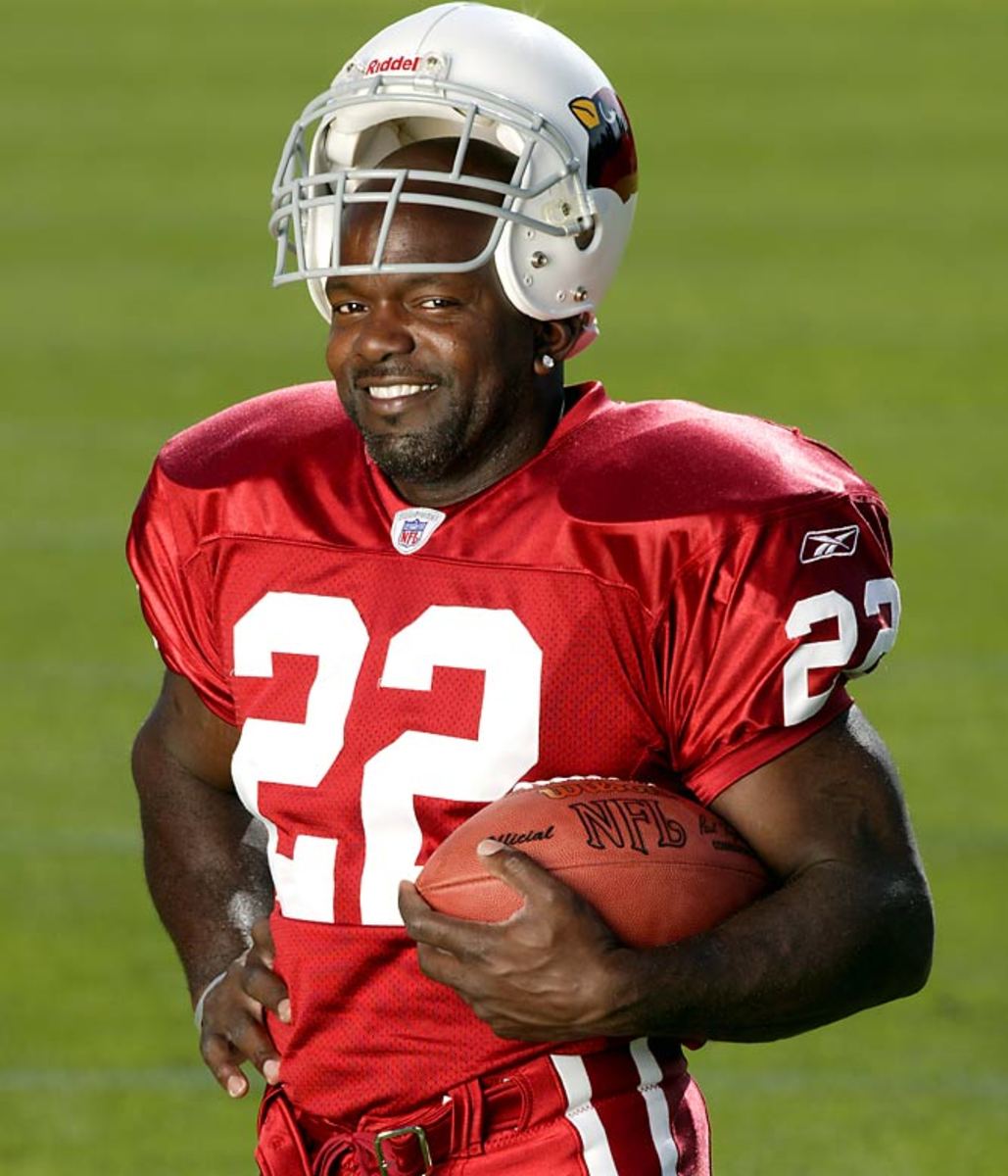
With the Cowboys struggling, the NFL's all-time leading rusher was released on Feb. 27, 2003 after 13 seasons. Smith, 34, then signed with the woebegone Arizona Cardinals, who went 4-12 as the four-time rushing champion squeezed out only 256 yards on 90 carries. Amazingly, he came back for more in 2004, picking up another 737 yards as the Cards improved to 6-10. Smith would later sign a contract with Dallas in order to instantly retire as a Cowboy.
Mark Messier
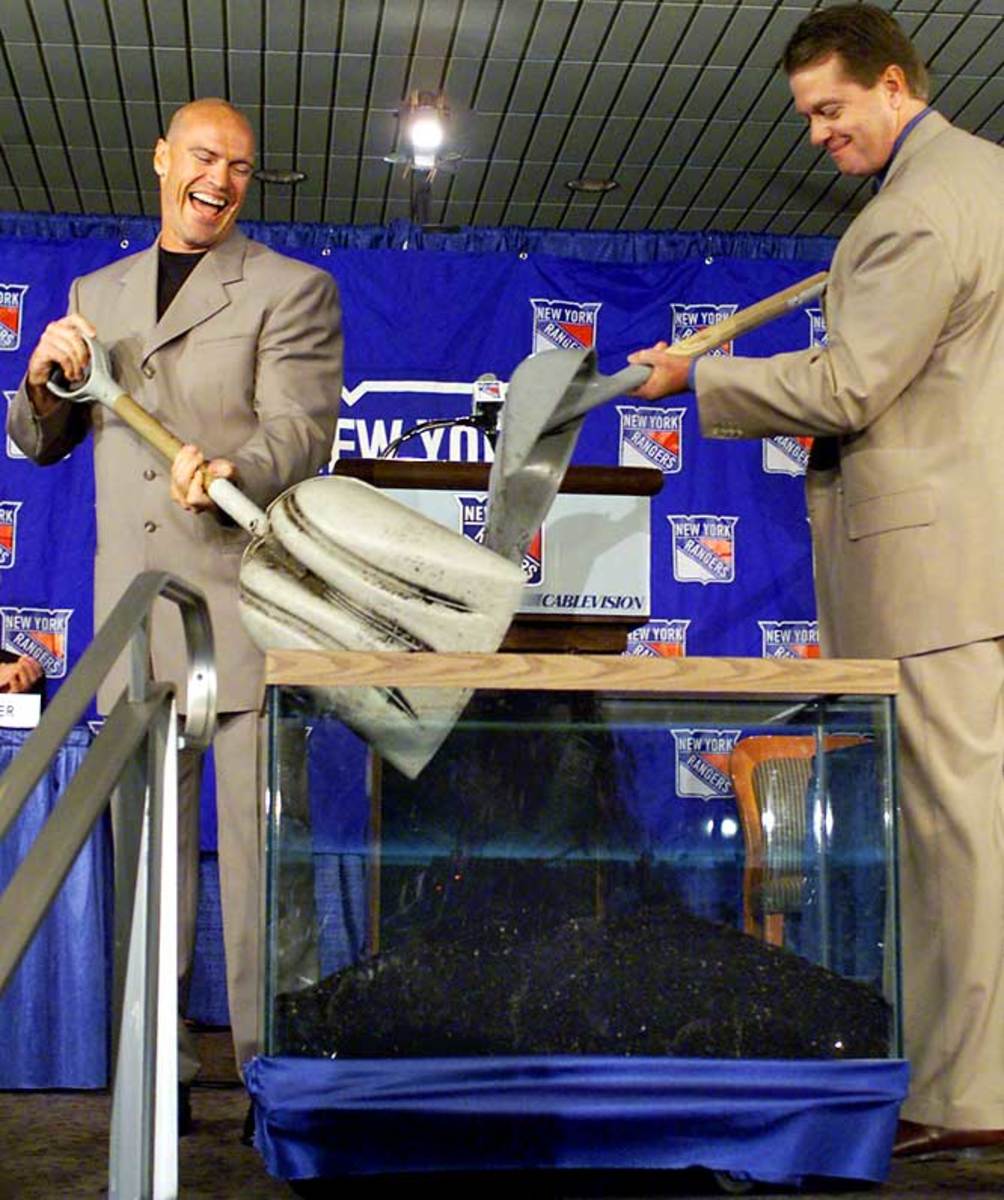
The 2000-01 season marked the second coming of the man most responsible for ending the Rangers' 54-year Stanley Cup drought. But the revered leader was 39 and coming off three lackluster, playoff-less seasons with Vancouver. Nevertheless, the reunion was emotional, with Messier and Rangers GM Neil Smith symbolically burying a hatchet. (Their contract dispute led to Messier's departure in 1997.) The captain guaranteed a playoff berth for the Rangers, who hadn't seen one in three years, but never made good on it He retired four years later, without scoring more than 24 goals or 67 points.
Patrick Ewing
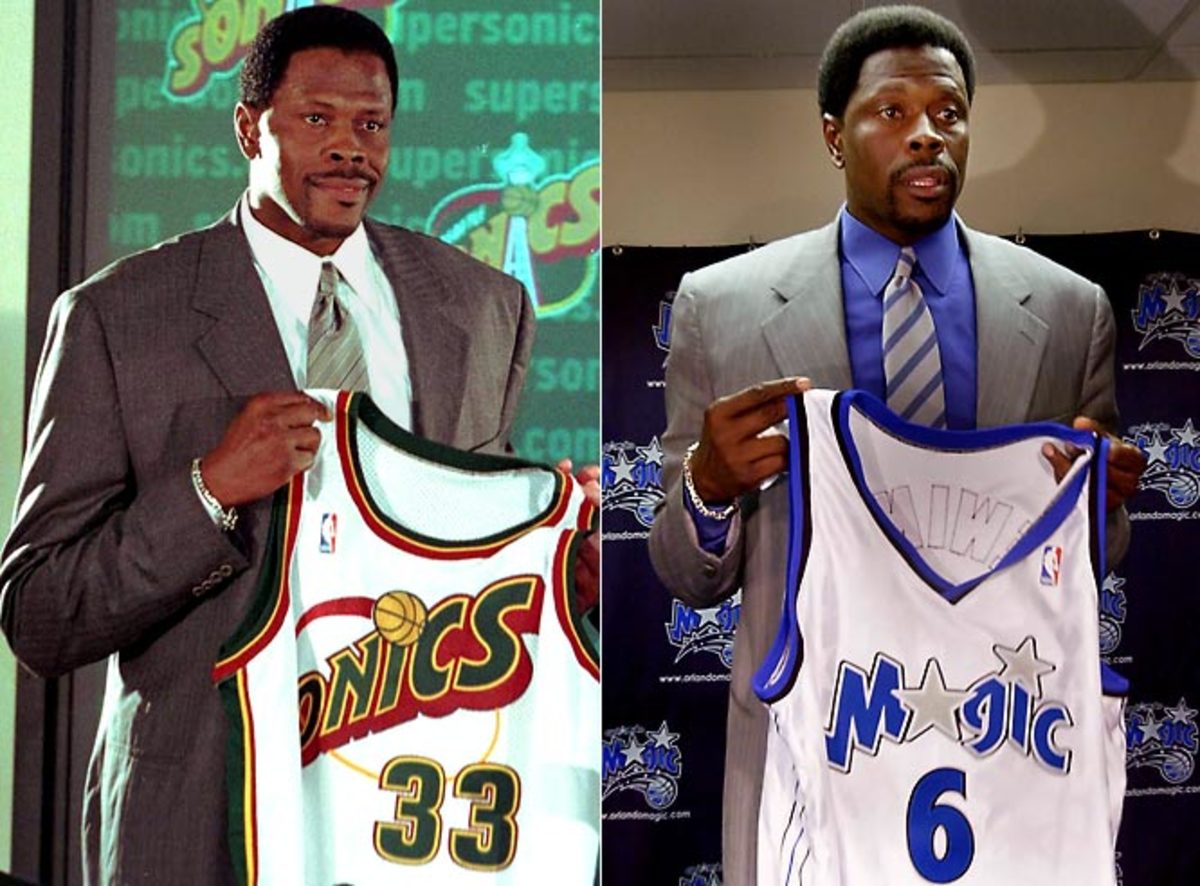
Ewing's 15-year career in New York ended with his request for a change of scenery, and without a constantly-anticipated championship, after the Knicks fell to Indiana in the 2000 Eastern Conference Finals. Sent to Seattle in a four-team trade that fetched Glen Rice, Luc Longley, Travis Knight, Vladimir Stepania, Lazaro Borrell, Vernon Maxwell, and four picks, Ewing , 36, did not justify the expectation that inspired the Sonics' Gary Payton to say, "I think Patrick's going to come and add us something that we needed" -- unless the Sonics needed Ewing's career-low 9.6 points per game. He played out the string with Orlando and retired on Sept. 18, 2002.
Wade Boggs
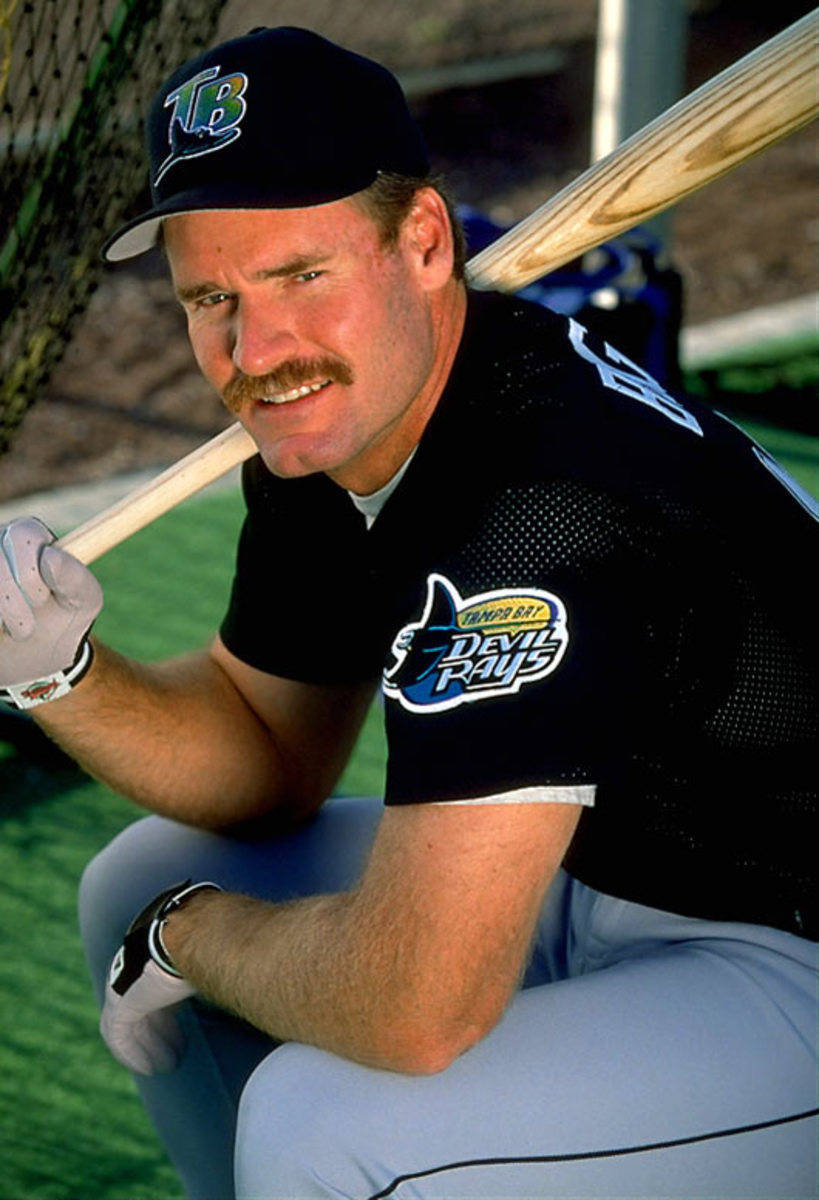
After five seasons with the Yankees, which included his only World Series title, the five-time batting champ went home after New York declined to pick up his $2 million option for 1998. Wishing to pursue his 3,000th career hit in front of family and friends, Boggs signed with woeful Tampa Bay for a bargain basement price of $750,000. In 1999, he reached his milestone, becoming the first player whose 3,000th hit was a home run. A knee injury then hastened the end of his career, and he retired with a lifetime average of .328 and 3,010 hits.
John Unitas
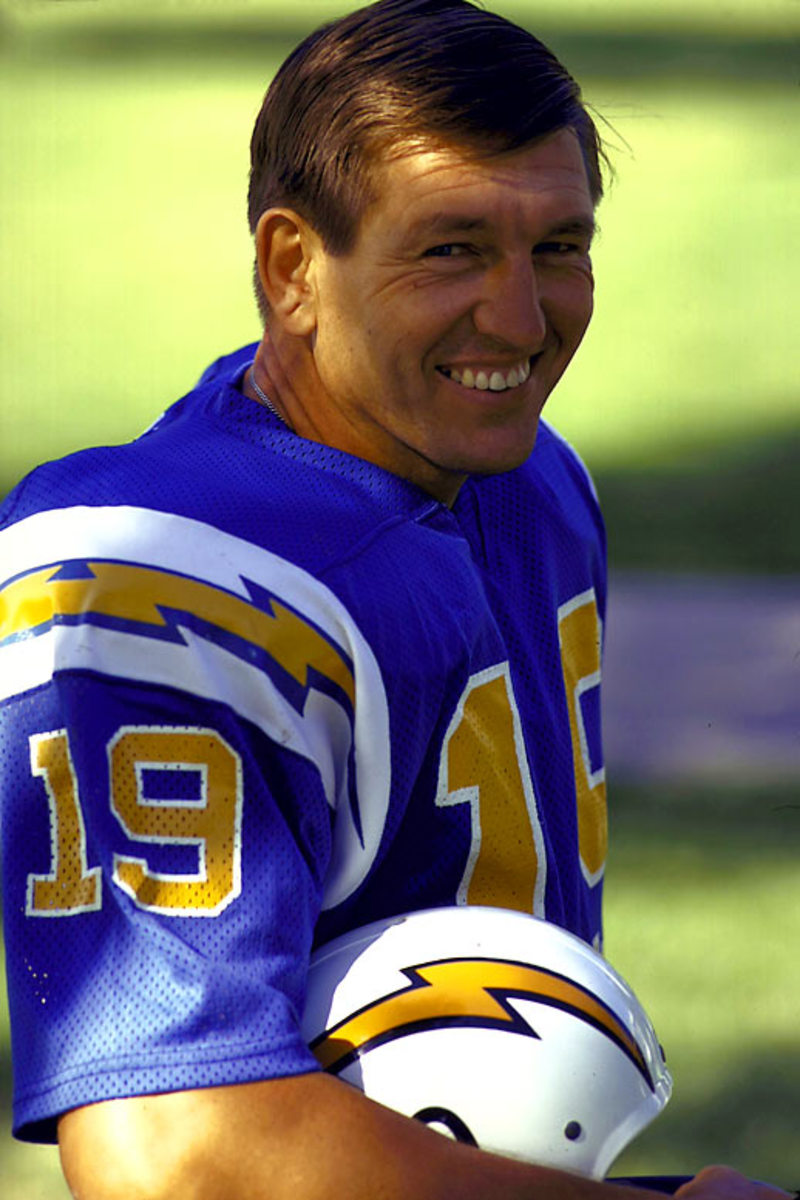
Injuries had reduced the once-great Unitas to a ghost of his former self, yet that was still enough for the Chargers, who acquired the 40-year old from the Baltimore Colts before the 1973 season. Johnny U. played in only five games, completing 34 passes for 471 yards, three touchdowns and seven interceptions before retiring. He still looks weird in that powder blue uniform.
Karl Malone
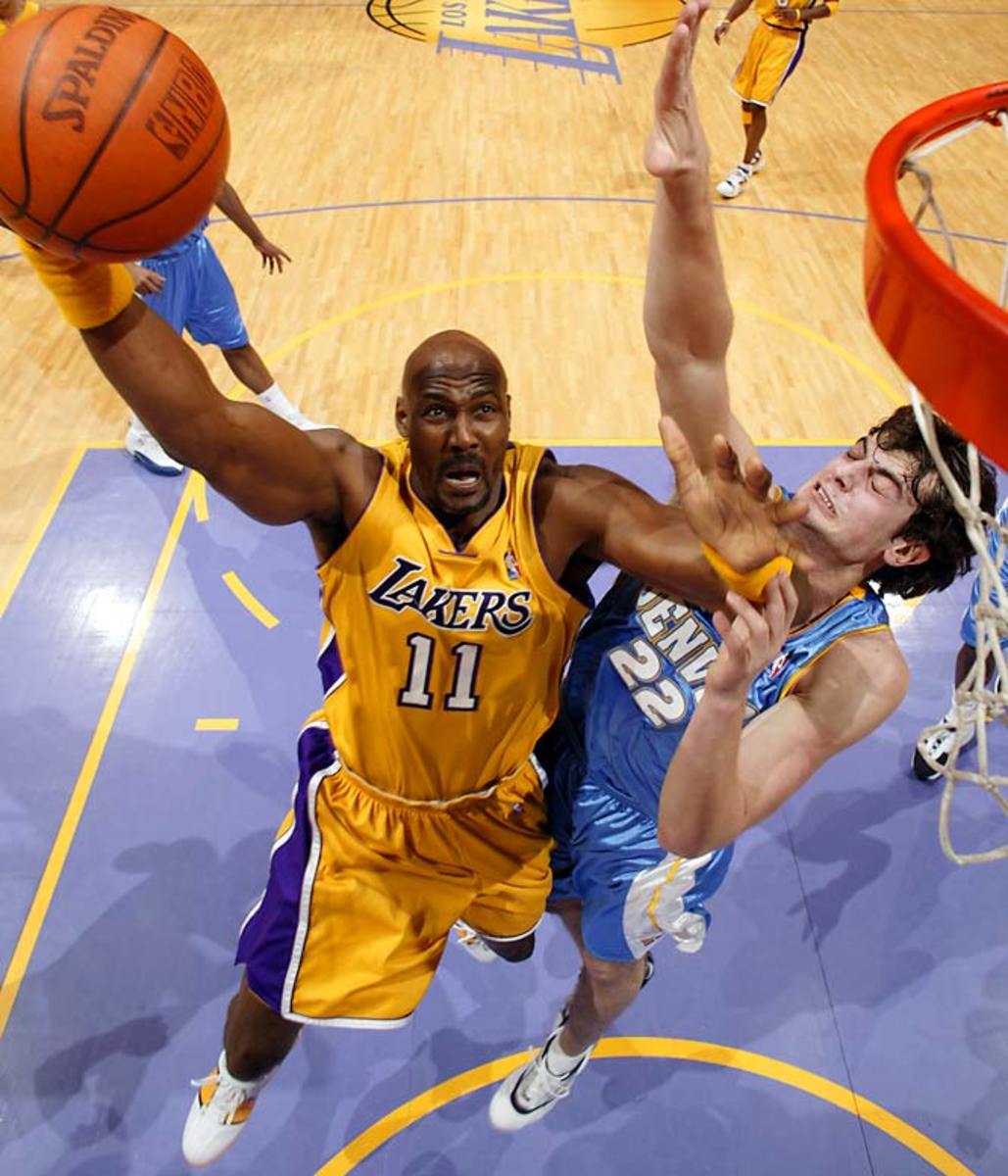
The Mailman was a mainstay in Utah for 18 seasons, leading the Jazz to the 1997 and 1998 NBA Finals, only to be thwarted by Michael Jordan and the Bulls each time. Desiring that elusive championship as the crown on his illustrious career, the 14-time All-Star and two-time NBA MVP signed with the Lakers, who boasted a powerhouse lineup of Shaquille O'Neal, Kobe Bryant and the newly-acquired Gary Payton. Alas, LA fell in five games to Detroit in the 2004 Finals as Malone, 40, was hindered by a knee injury. Even though several teams were interested in him for 2004-05, Malone retired on February 13, 2005.
O.J. Simpson
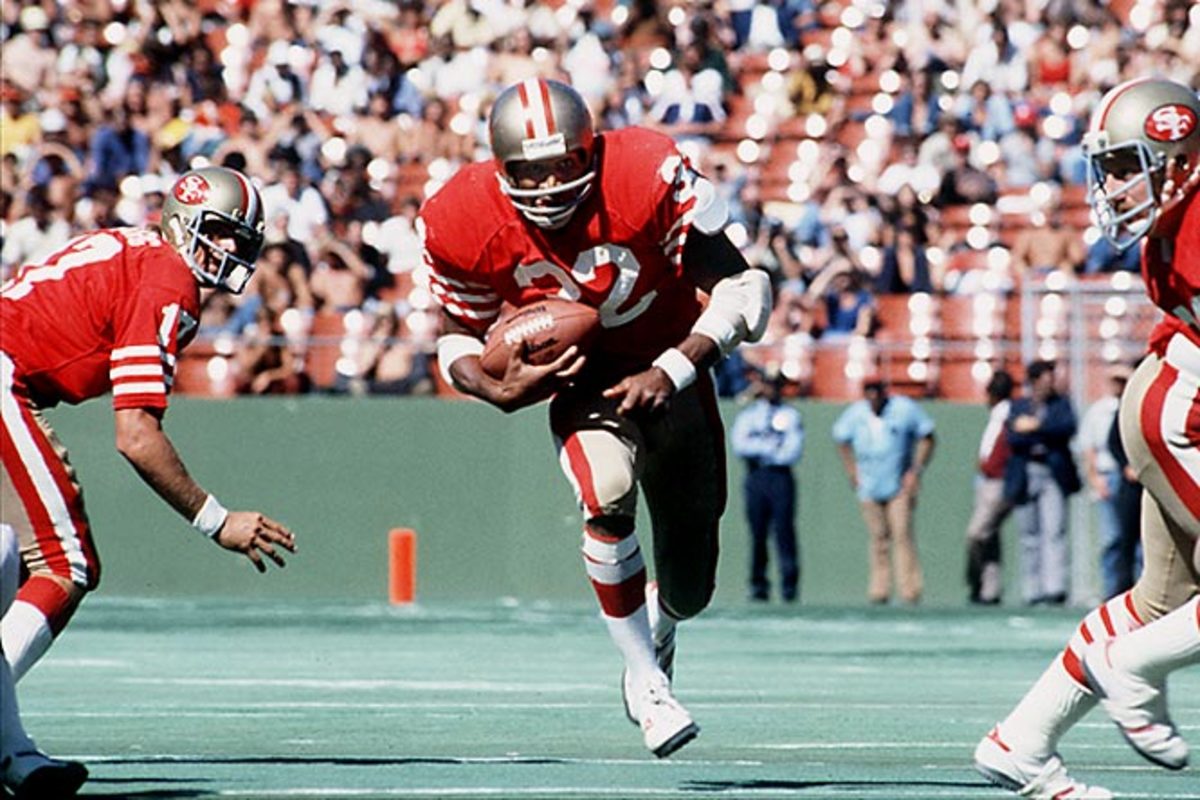
The first man to rush for 2,000 yards in an NFL season (1973), Simpson was running out of juice by 1977 when injuries limited him to 126 carries and 557 yards in seven games. Before the '78 campaign, the Buffalo Bills traded the former USC star, 31, to the sadsack 49ers for a second-round pick. Simpson never gained more than 593 yards in a season while the Niners eked out successive 2-14 marks.
Jerry Rice
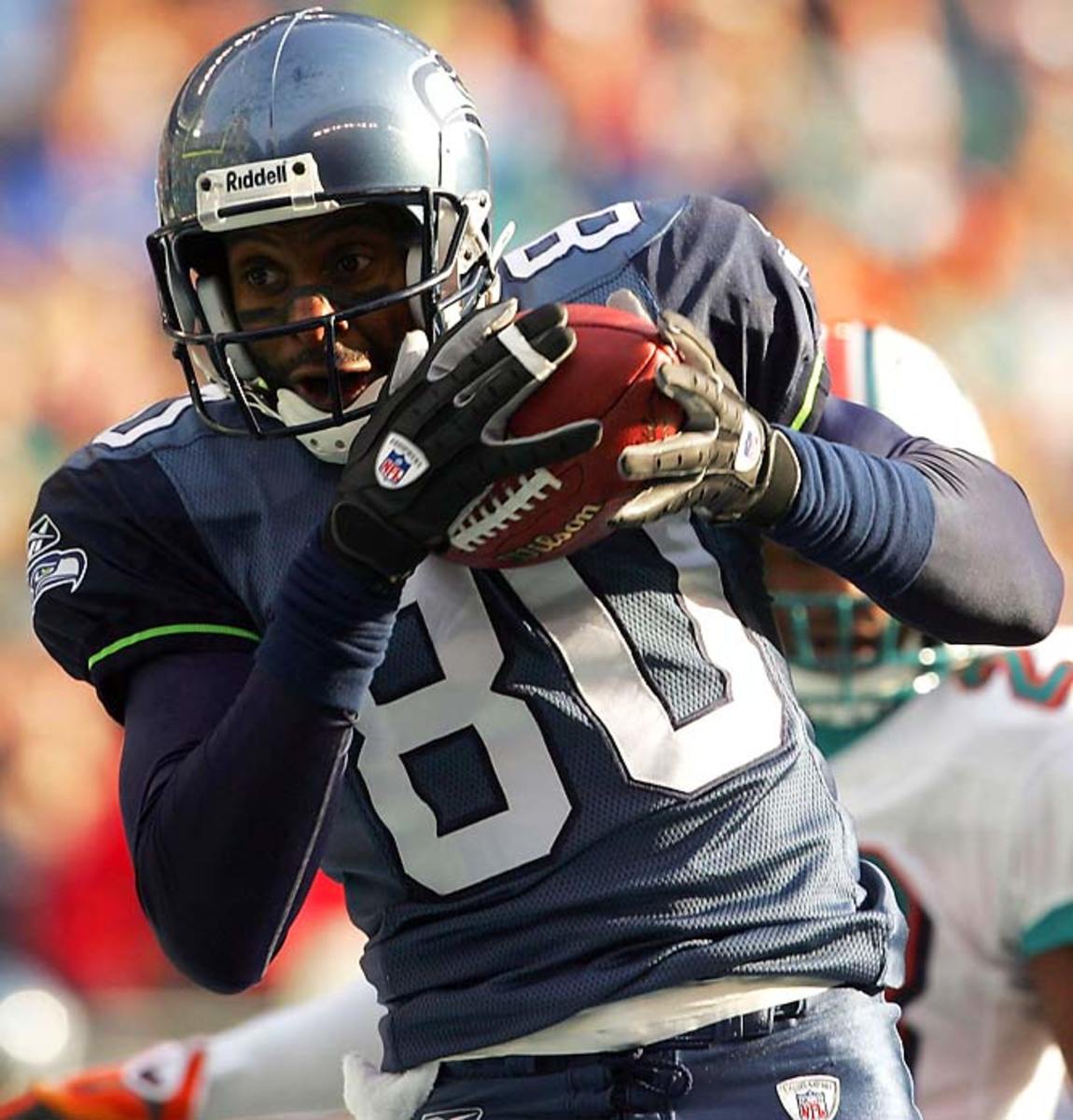
The former 49ers icon remained formidable during three seasons with the Oakland Raiders that included a Pro Bowl selection and five receptions for 77 yards in a Super Bowl XXXVII loss to Tampa Bay. As the Raiders crumbled and his role shrank, Rice requested a trade to Seattle during the 2004 season and added 25 catches, 362 yards and three more TD to his all-time marks. He then signed with Denver before the 2005 season, but hung up his helmet rather than accept fourth or fifth receiver status at the ripe old age of 42.
Hakeem Olajuwon
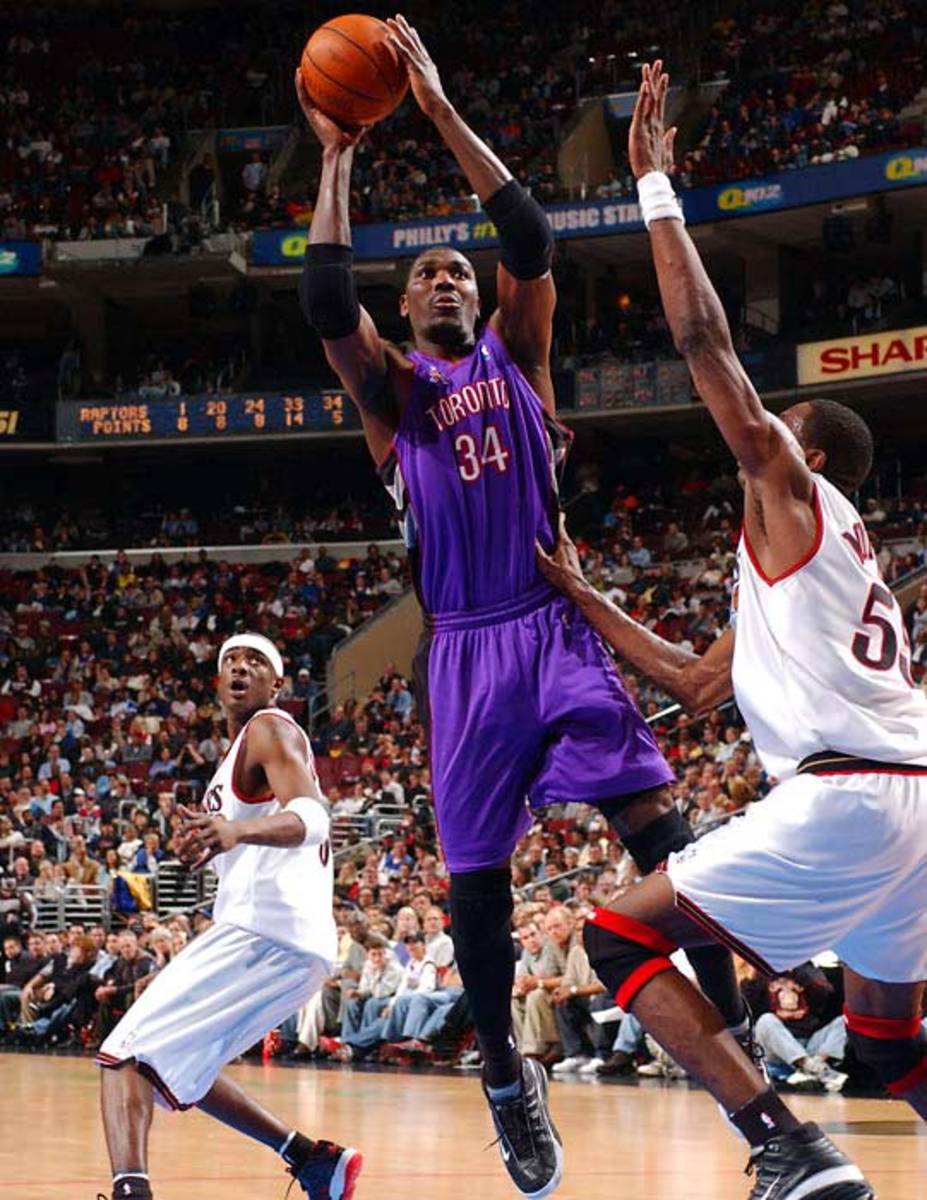
After 17 seasons in Houston, the centerpiece and MVP of the 1993-94 and 1994-95 NBA champs was traded by the rebuilding Rockets to Toronto on August 2, 2001 for two draft picks after refusing a three-year offer worth $13 million. At age 38, the former Hakeem The Dream was dreamy enough for the Raptors to give him three years at $17 million in the hope that he would complement Vince Carter. Alas, the 2001-02 season proved to be Olajuwon's last. He averaged career lows of 7.1 points and 6.0 rebounds and the Raptors fell in the first round of the playoffs.
Bobby Hull
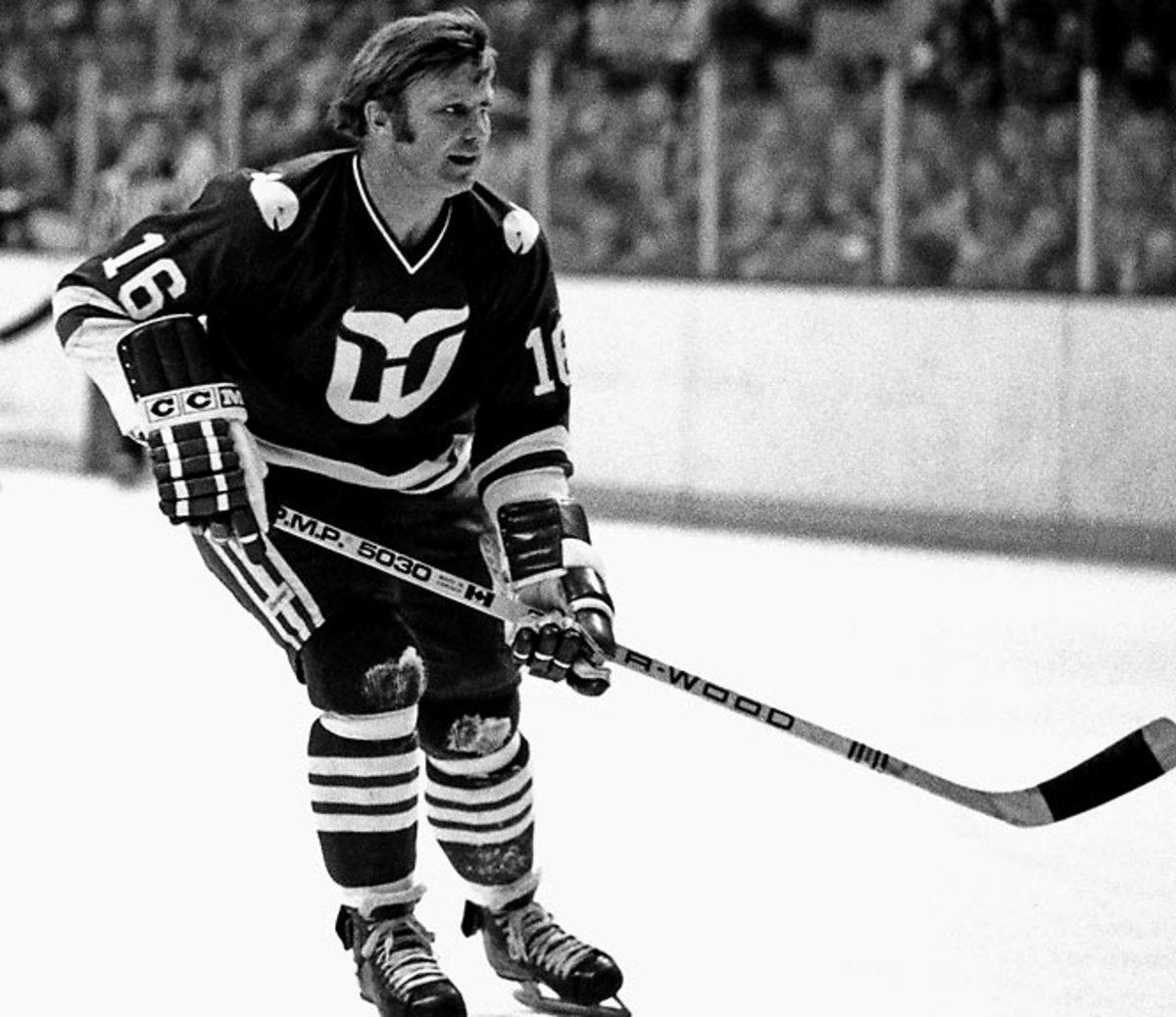
A fearsome scorer with the Blackhawks who made waves by accepting a 10-year, million dollar deal from Winnipeg of the WHA in 1972, the Golden Jet was finally slowed by injuries and age. After the 1979 NHL-WHA merger, Hull, 40, was reportedly in dire financial straits when he decided to come out of retirement. He played 18 games for the Jets before being traded to the Whalers for future considerations. Teaming with Gordie Howe in one of history's more grandly geriatric pairings, Hull lit the lamp twice in nine regular season games and not at all in three playoff matches before retiring for good.
Thurman Thomas
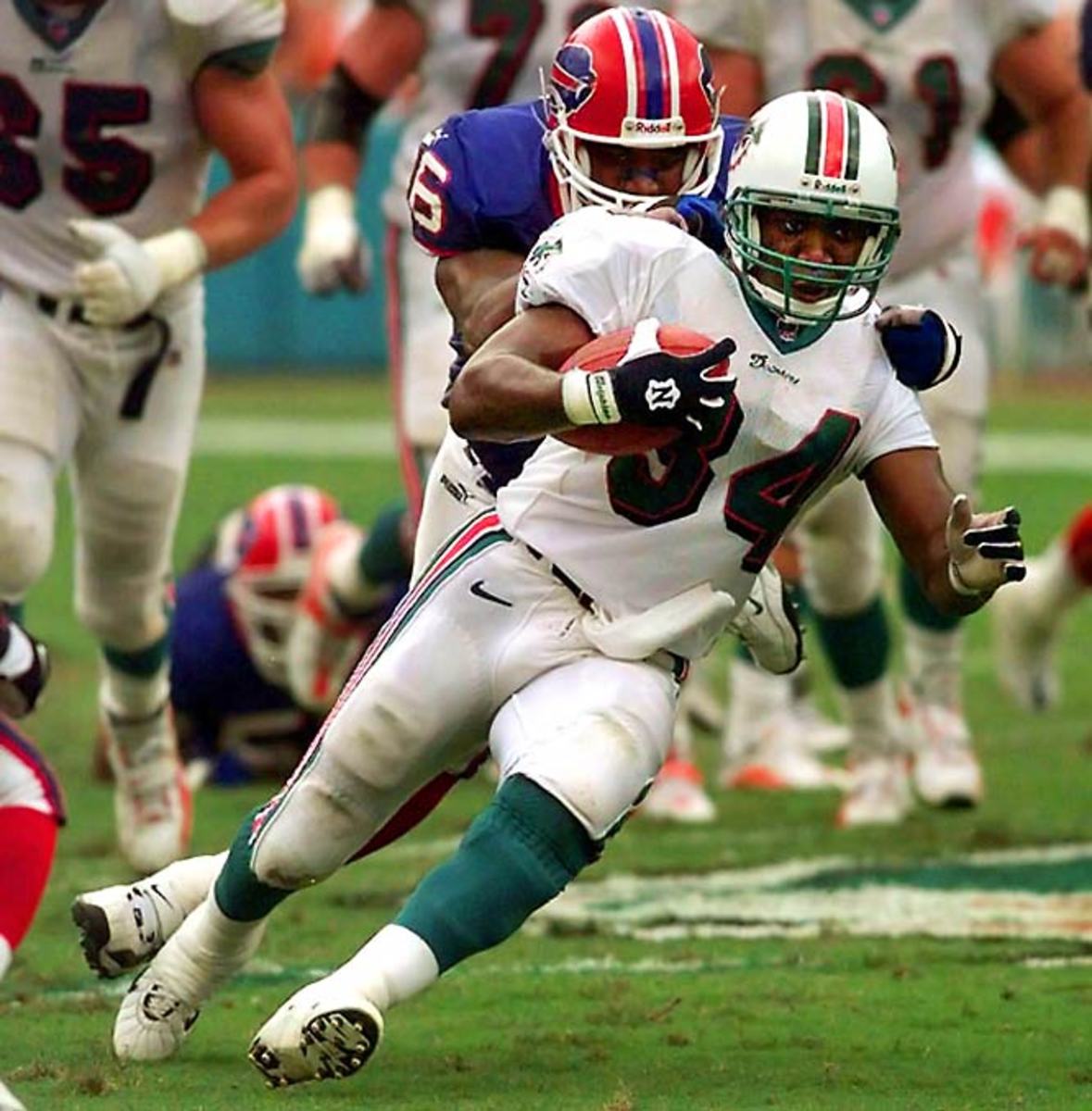
A Buffalo icon for 12 seasons and four Super Bowl appearances, Thomas departed when the Bills ran out of cap space in 2000. Signing with the AFC East arch-rival Dolphins for three years and $3.6 million, Thomas, 34, carried the pigskin 28 times for 136 yards in nine games before a knee injury in a November game against San Diego ended his career.
Reggie White
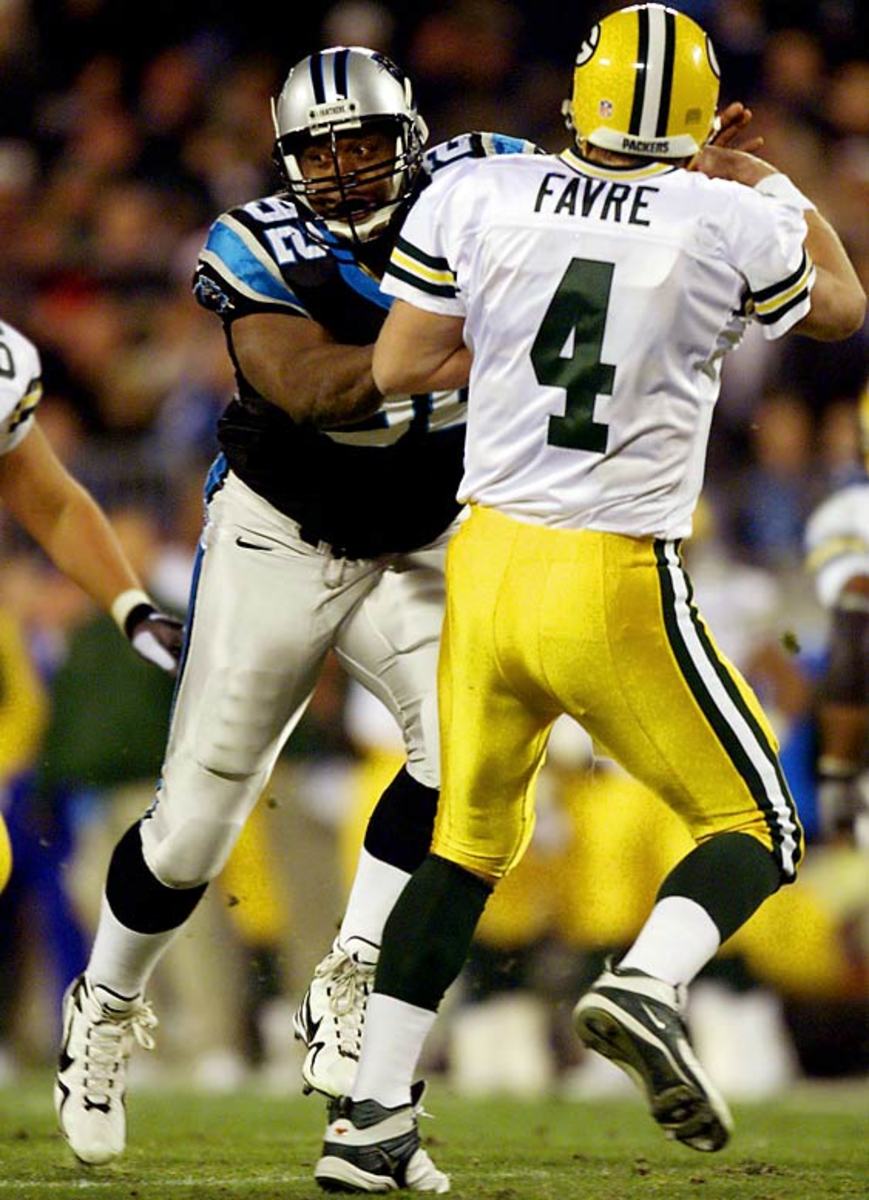
The Minister of Defense, the 1998 NFL Defensive Player of the Year and member of Green Bay's Super Bowl XXXI champions was lured out his one-year retirement by the Panthers in 2000 and started all 16 games. The Minister of Defense performed decently, if not dominantly, recording 16 tackles and six sacks for a 7-9 team. Not surprisingly, he retired again at the end of the season.
Raymond Bourque
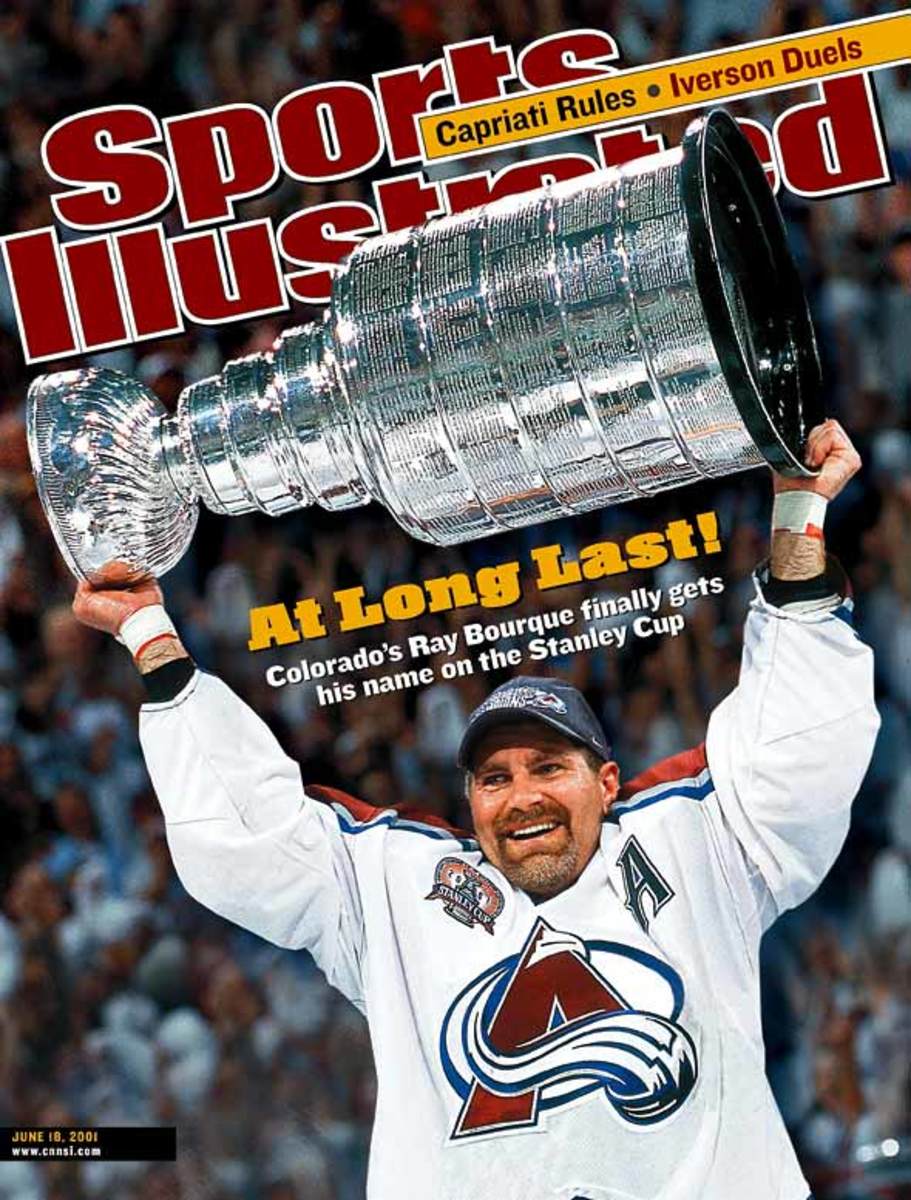
One of the few truly happy endings. The Bruins icon requested a trade from mediocre Boston so he would have a chance to win the Stanley Cup that had eluded him during his 21-year NHL career. Bruins GM Harry Sinden obliged, sending the perennial All-Star to Colorado on March 6, 2000 with Dave Andreychuk for Brian Rolston, Martin Grenier, Sami Pahlsson and a first-round pick. Bourque sparkled, leading Colorado defensemen in scoring as an alternate captain and earning First All-Star status. On June 9, 2001, the Avs won the Cup, ending the longest wait by a player in NHL history. Bourque was given the rare honor of carrying the chalice in the victory lap before the team captain.
